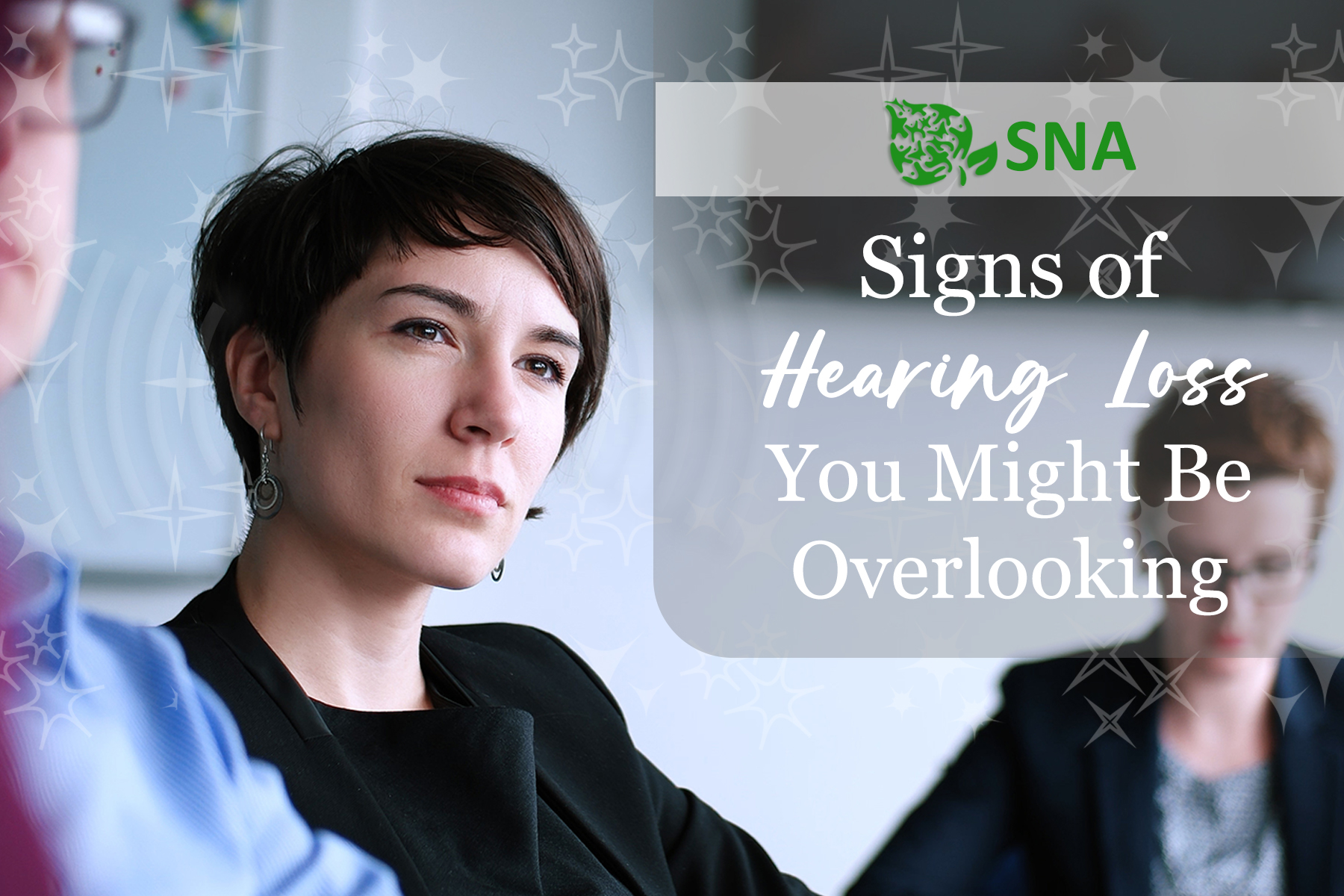Hearing is something many of us take for granted—until it starts to fade. The problem is that hearing loss often creeps up gradually, and many of its early signs can be subtle or easily overlooked. By the time people realize they’re struggling to hear, significant damage may have already occurred. That’s why it’s important to recognize the early signs of hearing loss and take action before the problem worsens.
In this blog, we’ll discuss some of the most commonly ignored signs of hearing loss, why they happen, and what you can do to protect your hearing health.
1. Turning Up the Volume
One of the earliest signs of hearing loss is needing to increase the volume on your TV, phone, or radio more than usual. If others are constantly telling you to turn it down, or if you find yourself struggling to hear even at higher volumes, it may indicate that your hearing is fading. This gradual increase often goes unnoticed by the individual experiencing hearing loss but is more apparent to family or friends.
2. Difficulty Following Conversations in Noisy Environments
If you find it hard to follow conversations in busy places like restaurants, cafes, or parties, it might not just be background noise causing the issue. Difficulty hearing in noisy environments is one of the first signs of high-frequency hearing loss, which affects your ability to distinguish speech from background noise. You may also notice you often ask people to repeat themselves, which can lead to frustration and social withdrawal.
3. Muffled or Distorted Sounds
When sounds, especially speech, start to seem muffled or unclear, it’s often a sign that your hearing is deteriorating. You might feel like people are mumbling, even though they’re speaking normally. This muffled perception is typically caused by damage to the inner ear, making it harder for the brain to interpret certain frequencies.
4. Struggling with Phone Calls
If you’ve noticed phone conversations becoming more difficult, it’s a common early sign of hearing loss. Without visual cues like lip-reading or body language, understanding speech over the phone can become challenging. People may sound distant or unclear, and you may find yourself pressing the phone closer to your ear or using speakerphone more often.
5. Fatigue After Listening
Feeling mentally or physically exhausted after socializing or engaging in long conversations can be a sign that your brain is working harder to interpret sounds. As your hearing declines, your brain must compensate by straining to make sense of incomplete sound signals, which can be tiring. This fatigue can lead to avoiding conversations altogether, causing a negative impact on social life and mental well-being.
6. Ringing in the Ears (Tinnitus)
Tinnitus, a persistent ringing or buzzing in the ears, is commonly associated with hearing loss. While it’s not always a sign of hearing impairment, it can indicate damage to the auditory system. If you’ve been experiencing tinnitus, it’s a good idea to get a hearing test, as it often goes hand-in-hand with hearing deterioration.
7. Misunderstanding Conversations
If you frequently misunderstand words or phrases, especially in quiet settings, this could be a subtle sign of hearing loss. For example, you might think someone said “hat” when they really said “cat.” While everyone mishears things occasionally, repeated misunderstandings should be taken seriously, as they can indicate issues with processing certain sounds or frequencies.
8. Missing Out on Everyday Sounds
Pay attention to whether you’re missing common sounds, like birds chirping, the ticking of a clock, or the doorbell. These high-frequency sounds are often the first to fade with hearing loss. If you no longer notice these sounds, it’s time to assess your hearing health.
9. Withdrawing from Social Situations
Many people with hearing loss start to avoid social gatherings because they struggle to follow conversations or feel embarrassed about asking people to repeat themselves. If you find yourself isolating more or feeling anxious in group settings, this could be a sign that untreated hearing loss is affecting your lifestyle.
What You Can Do
If any of these signs sound familiar, the best course of action is to schedule a hearing test with a licensed audiologist. Regular check-ups can catch hearing issues before they progress, and there are many modern solutions, such as hearing aids or other devices, that can significantly improve your quality of life.
Ignoring early signs of hearing loss won’t make the problem go away. In fact, it can make things worse. By recognizing the symptoms early and seeking treatment, you can maintain your hearing health and stay connected to the world around you.
Make an appointment today to take control of your hearing health—your ears will thank you!

